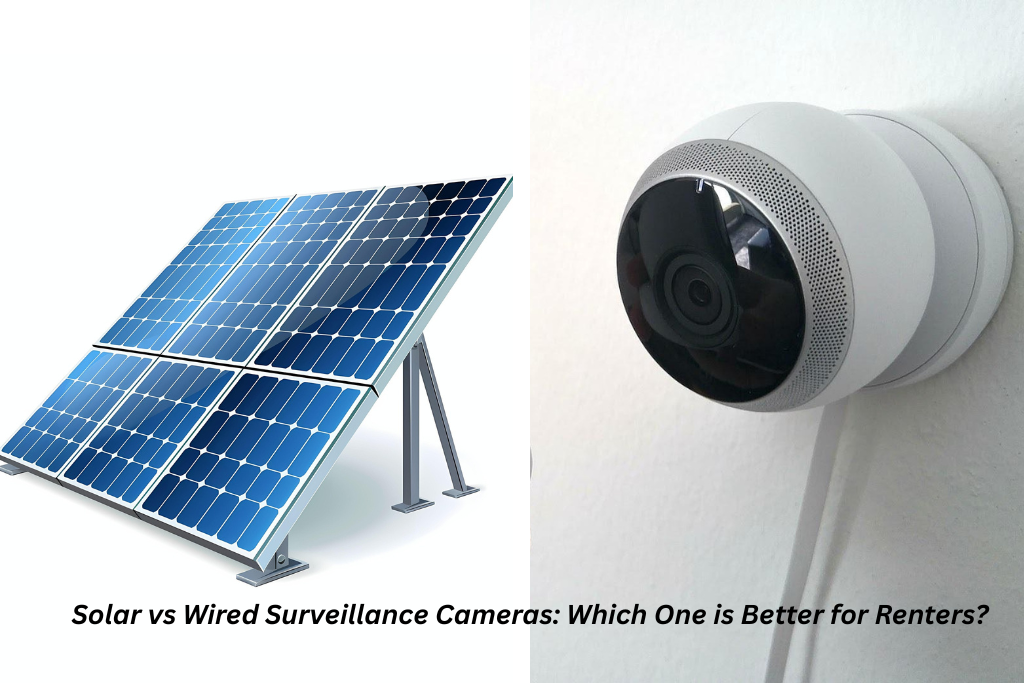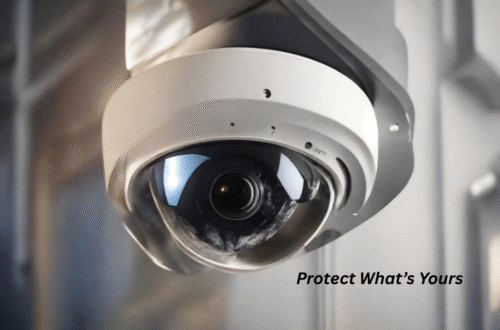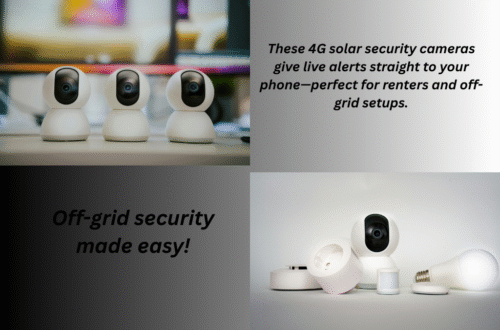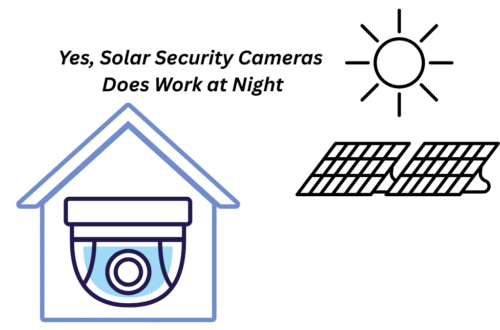
Solar vs Wired Surveillance Cameras: Which One is Better for Renters?
The growing security concerns for renters have made surveillance cameras a necessity. The increasing cases of home invasions, package theft, and property damage have made these cameras a must-have.
Renters do not have the liberty to make permanent changes to their property. That’s why they need surveillance cameras to get peace of mind. There are several types of surveillance cameras, such as wired, wireless, IP, cellular, and solar cameras. That many options cause difficulty for renters to choose the right one. That’s why, in this article, we will discuss and compare two of them, including Solar and Wired cameras, to see which one is better for renters.
Solar Surveillance Cameras
A solar surveillance camera is powered by solar energy. These cameras do not rely on electricity from the grid. Instead, they use sunlight energy captured by solar panels. The solar panels charge the internal rechargeable battery, and the battery supplies energy at night or even on cloudy days.
Key Features
- They use sunlight to charge, which makes them eco-friendly.
- The wire-free installations free you from the hassle of drilling and complicated wiring
- These cameras have remote monitoring and connect through Wi-Fi or cellular network
- Weather resistance makes them suitable for outdoor use
- The motion detection and alerts feature notifies you when movement is detected.
Pros
- No need for electrical outlets.
- Easy to install and relocate.
- Low maintenance and no monthly electricity cost.
- Works during power outages
Cons
- Performance depends on sunlight exposure.
- Battery life may be limited during long, cloudy, or rainy periods.
- Generally more expensive upfront.
Best Solar-Powered Surveillance Cameras
| Solar Cameras | Features |
| Tapo C410 Solar‑Powered Security Camera Kit | A renter-friendly kit with 2K QHD video, motion detection, night vision, two-way audio, and reliable solar charging with up to 180-day battery life. |
| KIHO Solar Guard V380 Pro 4G Solar Camera | Supports 4G SIM and Wi-Fi, dual wide-angle 6 MP lenses, two-way audio, micro-SD/cloud storage, all weatherproof, great for places without reliable Wi-Fi. |
| KIHO 360° Solar‑Powered CCTV Camera | Offers full 360° panoramic coverage, Wi-Fi-enabled solar power, night vision, and two-way audio, ideal for full-area surveillance |
Wired Surveillance Cameras
Wired surveillance cameras capture videos using physical cables. These cameras use coaxial cable or analog CCTV and Ethernet cable, or IP cameras. They get their power from a separate power cable connected to a power supply or a single Ethernet cable if they use PoE. Wired surveillance cameras are connected directly to the property’s power supply and often linked to a recording system.
Key Features
- These cameras work using a continuous power supply and do not need to be recharged
- They have no interruptions due to low battery and offer high quality stable video feed
- Offer multiple camera connectivity and ideal for large coverage
- They have secure data storage with local or cloud storage options
- Weather-proof models are also available.
Pros
- Reliable performance 24/7.
- No battery limitations.
- Often, better video quality.
- Can integrate with advanced security systems.
Cons
- Requires drilling or wiring, which is often not allowed in rentals.
- Installation can be costly and time-consuming.
- Not portable and hard to take when you move
- May require professional setup.
Best Wired Surveillance Camera Options
| Wired Cameras | Features |
| Google Nest Cam | Smart outdoor/indoor camera with intelligent alerts (person/vehicle/animal recognition), 1080p HDR, and strong integration with Google Home. Basic features include 3 hours of historyGoogle Nest Cam Indoor (Wired)Indoor-focused version with similar smart recognition and alert features, ideal for renters who want simple plug-and-play security |
| Google Nest Cam Indoor (Wired) | Indoor-focused version with similar smart recognition and alert features, ideal for renters who want simple plug-and-play security |
| JAIOTlink 2K Wired Pan-Tilt Camera | Dual-band Wi-Fi support, full pan-tilt control, two-way audio, color night vision, cloud-only storage, and convenient for renters who want easy setup and reliable indoor coverage |
Which One is More Suitable for Renters?
For renters, solar-powered surveillance cameras are generally the better choice. They are easy to install without damaging the walls, not requiring the approval of the landlord for portable, and permanent changes. In addition, they are cost effective in long periods of time with zero electricity bills. Wired cameras are more favorable for homeowners who can make permanent changes and want more strong, always-system.
Which Option Suits Renters Best?
Solar-powered cameras are more renter-friendly because they offer tool-free installation. You don’t need drilling or electrical work. These cameras have zero dependency on home power or Wi-Fi (especially with 4G options). They are also portable, which makes them easy to move when relocating.
Wired cameras deliver more consistent power and smarter integrations, but they require a continuous source of energy. Also, they are less convenient because of potential landlord restrictions and mobility.
Conclusion
Selecting the surveillance camera depends on your needs and how long you are going to stay at that rental property. In any case, solar-powered surveillance cameras are the most suitable option for renters.
FAQs
What are the disadvantages of solar surveillance cameras?
- The solar-powered security cameras have limitations such as
- Their performance drops in prolonged cloudy or rainy conditions
- They usually run on motion-activated recording to save battery, so they may miss constant footage.
- They are also often more expensive than basic wired or plug-in models
- Needs a good spot with direct sunlight; shaded areas won’t work well
- Over the years, rechargeable batteries can lose capacity, reducing run time.
Wired or wireless CCTV cameras, which are better?
It depends on your needs. For example, wireless cameras are best for renters. For homeowners, wired cameras are the most suitable.
Are wired security cameras safer?
Yes, in most cases, wired security cameras are safe. There are no battery runouts and footage gaps. Direct cable connection means fewer wireless vulnerabilities (though no system is 100% hack-proof). Also, these cables are often hidden or protected, making them harder to disable. However, “safer” can also mean less risk of property damage disputes for renters, where wireless or solar is safer in terms of avoiding landlord issues.





One Comment
Pingback: